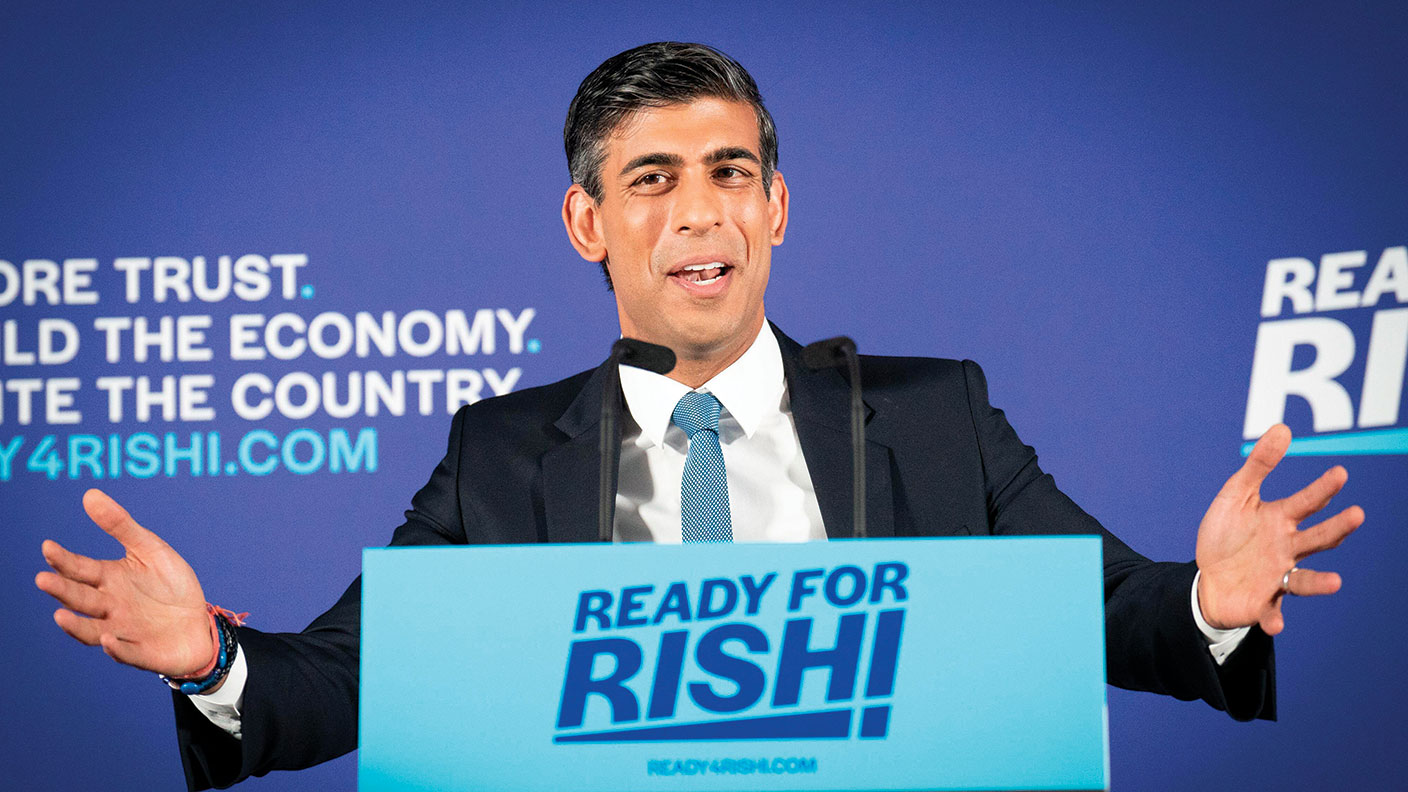The public may have reached its limit for tax rises
The UK tax burden is now at a 70-year high. And, while there may be some reason to hold off on cuts right now, taxes are too high because the state tries to do too much. Perhaps it should do less, says Merryn Somerset Webb.


Get the latest financial news, insights and expert analysis from our award-winning MoneyWeek team, to help you understand what really matters when it comes to your finances.
You are now subscribed
Your newsletter sign-up was successful
Want to add more newsletters?

Twice daily
MoneyWeek
Get the latest financial news, insights and expert analysis from our award-winning MoneyWeek team, to help you understand what really matters when it comes to your finances.

Four times a week
Look After My Bills
Sign up to our free money-saving newsletter, filled with the latest news and expert advice to help you find the best tips and deals for managing your bills. Start saving today!
Rishi Sunak says that if he becomes prime minister he will cut taxes as soon as he “has gripped” inflation. That would be nice. Over the past 12 years of Conservative government, middle- and high-income-earning households have become “significantly worse off”, says The Times. In 2010, tax freedom day (the day when you have earned enough to pay all your taxes) came on 30 May. This year it came on 8 June. You can thank the government for nine extra days working for the state (with, as far as I can see, no obvious improvement in the public services the state provides in return).
This is mostly about fiscal drag: if the threshold for paying the 40% rate of tax had risen in line with inflation since 2010, it would now be well over £58,000. The fact that it hasn’t will have cost those who pay it (an extra three million of them since 2010) £1,653 each. The threshold at which you lose your personal income tax allowance is currently £100,000. If it had gone up with inflation it would be just over £130,000. That bit of drag costs those who pay it more than £6,000.
A growing burden
I could go on. But you get the picture: the UK tax burden is now at a 70-year high, with taxes as a percentage of GDP at 33.8% (the last time that number was higher was in 1951). As the chancellor of the exchequer until just over a week ago, Sunak is very, very far from innocent in all this. He calls himself an instinctive tax cutter. But if that is so, he was clearly working hard to suppress his true self during his time in the Treasury.
MoneyWeek
Subscribe to MoneyWeek today and get your first six magazine issues absolutely FREE

Sign up to Money Morning
Don't miss the latest investment and personal finances news, market analysis, plus money-saving tips with our free twice-daily newsletter
Don't miss the latest investment and personal finances news, market analysis, plus money-saving tips with our free twice-daily newsletter
Sunak oversaw three big tax rises. He raised corporation tax from 19% to 25% with effect from next April. He increased national insurance rates by 1.25 percentage points for all (and dividend taxes by the same amount, to catch people who mostly get paid in dividends through their own companies). A national insurance hike is an effective rise in income tax, whether you want to call it that or not. And he froze all allowances again – with inflation heading for 10% this represents another huge tax hike through fiscal drag.
Collectively, those measures should raise £50bn a year in extra revenue by 2024-2025, Sunak reckons. And the tax burden by then? A depressing 36.6%.
Time to change
There is some reason to hold off on tax cuts right now – and particularly to hold off on slashing corporation tax back to 15% as Sunak’s rivals seem to want to (all the chopping and changing is a nightmare for companies). It is a complicated and expensive time. But Sunak needs to be careful about how he looks at the numbers – and at those who pay the taxes his party demands.
He warns that the idea that tax cuts can work for the UK economy right now is nothing more than a “comforting fairy tale”. He also tells us that “it is hard to cut taxes when the demands on the state are growing” (public spending is forecast to hit 41.1% by 2026-2027).
But we do wonder if it might be better to look at this the other way around – and ask if perhaps taxes are too high because the state tries to do too much. We also wonder if the real fairy tale might be in the idea that the UK’s working population will put up with their tax freedom day extending any further into June. We may have our limits.
Get the latest financial news, insights and expert analysis from our award-winning MoneyWeek team, to help you understand what really matters when it comes to your finances.

-
 Early signs of the AI apocalypse?
Early signs of the AI apocalypse?Uncertainty is rife as investors question what the impact of AI will be.
-
 Reach for the stars to boost Britain's space industry
Reach for the stars to boost Britain's space industryopinion We can’t afford to neglect Britain's space industry. Unfortunately, the government is taking completely the wrong approach, says Matthew Lynn
-
 Was Margaret Thatcher great for Britain?
Was Margaret Thatcher great for Britain?The 'Iron Lady’ would be celebrating her 100th birthday this month. Margaret Thatcher rose to power in 1979 as the first ever female prime minister and was one of the most controversial leaders in history, but how did her policies shape today’s finances?
-
 Conservatives pledge to cut National Insurance again – how much could you save?
Conservatives pledge to cut National Insurance again – how much could you save?News A 2p reduction in National Insurance is a key feature of the Tory’s general election manifesto.
-
 UK wages grow at a record pace
UK wages grow at a record paceThe latest UK wages data will add pressure on the BoE to push interest rates even higher.
-
 Trapped in a time of zombie government
Trapped in a time of zombie governmentIt’s not just companies that are eking out an existence, says Max King. The state is in the twilight zone too.
-
 America is in deep denial over debt
America is in deep denial over debtThe downgrade in America’s credit rating was much criticised by the US government, says Alex Rankine. But was it a long time coming?
-
 UK economy avoids stagnation with surprise growth
UK economy avoids stagnation with surprise growthGross domestic product increased by 0.2% in the second quarter and by 0.5% in June
-
 Bank of England raises interest rates to 5.25%
Bank of England raises interest rates to 5.25%The Bank has hiked rates from 5% to 5.25%, marking the 14th increase in a row. We explain what it means for savers and homeowners - and whether more rate rises are on the horizon
-
 UK inflation remains at 8.7% ‒ what it means for your money
UK inflation remains at 8.7% ‒ what it means for your moneyInflation was unmoved at 8.7% in the 12 months to May. What does this ‘sticky’ rate of inflation mean for your money?